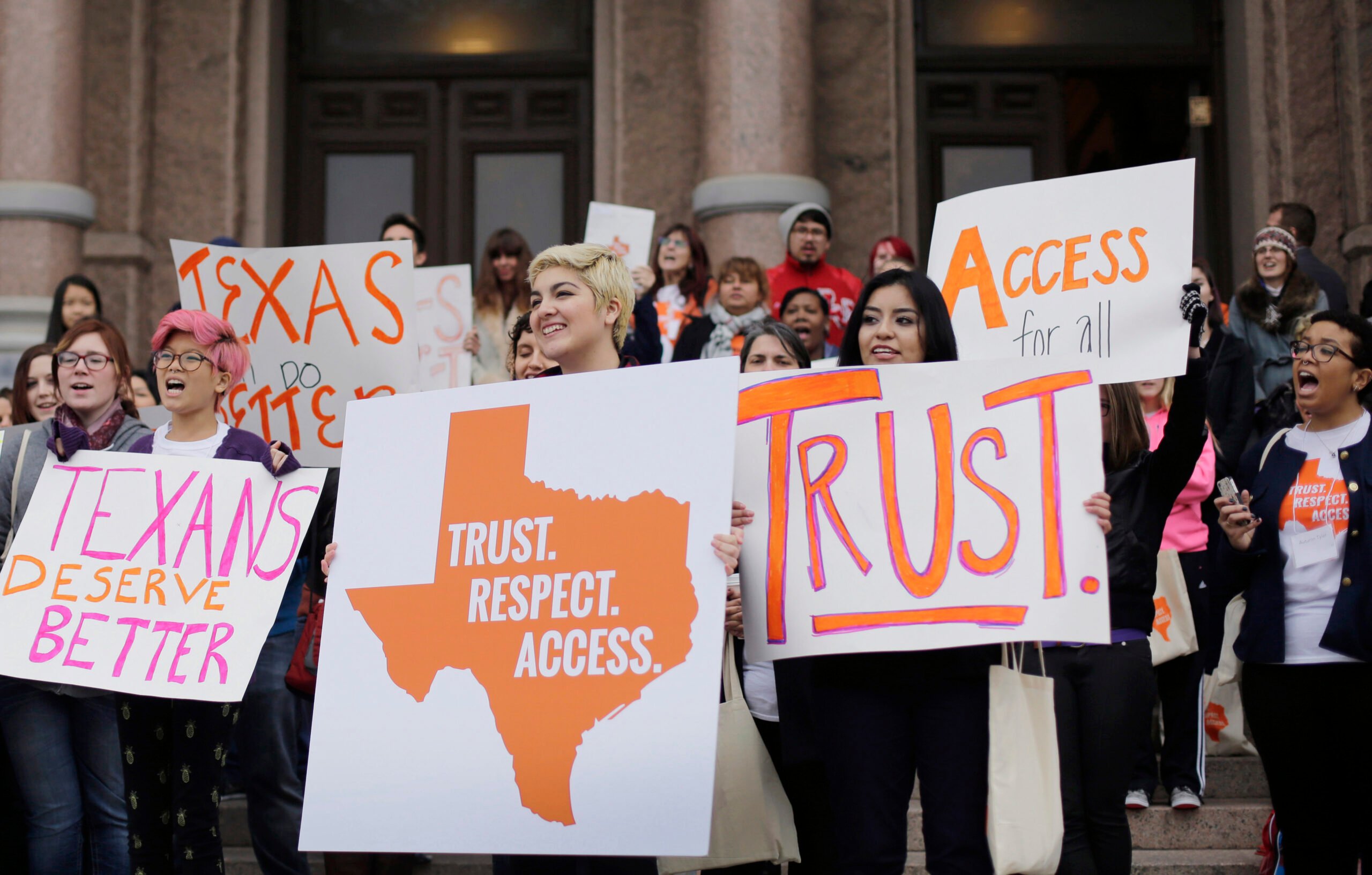
5th Circuit Abortion Ruling: Road Trips Aren’t that Bad
Legal battle over Texas abortion restrictions likely headed to Supreme Court.
Above: A pro-life demonstrator holds up a plastic baby at the Texas Capitol in July.
In a move that surprised no one, the 5th U.S. Circuit Court of Appeals yesterday upheld the constitutionality of Texas’ new restrictions on abortion clinics. In doing so, the conservative appellate court handed a victory to the anti-choice phalanx in Texas who trumpeted the decision as good news (Rick Perry), a victory (Texas Right To Life) and a vindication of the Legislature’s careful deliberations (Greg Abbott).
It was widely expected that the 5th Circuit would side with the state. In October, the court allowed the most controversial provisions of Texas’ new abortion law—which state Sen. Wendy Davis famously filibustered last summer—to take immediate effect, granting an emergency request from Abbott before the justices had even heard oral arguments. That was a clear signal that abortion-rights groups weren’t likely to win.
Still, yesterday’s ruling is disappointment for abortion providers. They argue that the two provisions of the law they had hoped to overturn in this legal challenge have already caused considerable turmoil. In particular, the requirement that abortion providers have admitting privileges at nearby hospitals has led to the closure of at least 10 abortion clinics since last fall, providers say. Women seeking abortions in rural areas like the Rio Grande Valley, the Panhandle, and in vast swathes between El Paso and Interstate 35 must now travel greater distances.
But the appellate judges weren’t convinced that the need to travel further to access abortion was a big deal. At the oral argument in January, Chief Justice Edith Jones observed that the roads between the Rio Grande Valley and Corpus Christi were flat and uncongested. It seemed beyond Justice Jones’ imagination that a Texas road trip might not be an adventure—or more than a minor inconvenience—for a woman with a full-time job, child care responsibilities or visa restrictions that confine her to the lower reaches of the Rio Grande Valley.
The court’s ruling reprised this assumption by noting that the journey from the Valley to the nearest abortion clinic in Corpus Christi takes only three hours. Moreover, the judges added, these women are exempt from the mandatory 24-hour wait because they live in rural areas, so what’s unduly burdensome about that?
In another curtsy to the joys of the Texas road trip, the judges note in their ruling that women don’t lack access to abortion clinics, because major providers still exist in Austin, Dallas, Houston, El Paso, Corpus Christi and San Antonio. Yet the opinion overlooks the reality for many women whom this ruling will affect. Before the law was implemented, low-income women were already making difficult economic decisions to pay for their abortions. They were pawning their belongings or skipping their rent to save money. The closure of abortion clinics in all but major urban areas makes accessing abortion even more difficult for poor women in rural areas.
The last legal hope for Texas abortion providers is the U.S. Supreme Court. So far, the plaintiffs in the case—the Center for Reproductive Rights, The Planned Parenthood Federation and The American Civil Liberties Union of Texas—haven’t confirmed that they will appeal. However, both sides expect the case to end up before the nation’s highest court. Indeed, Supreme Court Justice Stephen Breyer wrote in a dissenting opinion about whether the bill should be delayed while the Fifth Circuit deliberated and that at least four members of the high court would be willing to consider law’s constitutionality, regardless of what the appellate court ruled.
Meanwhile, another more dramatic provision of the law looms. By Sept. 1, all remaining abortion clinics in Texas must upgrade their facilities to meet the standards of ambulatory surgical care centers. Abortion providers note that the upgrades are so expensive that only six clinics in Texas may survive.
No doubt, the state of Texas will trumpet this outcome as a victory for women’s health and safety. Poor women without the means to traverse Texas’ winding highways may not agree.


